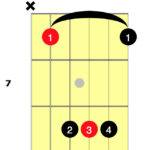Examining the Guitar Skills of Slash and the Importance of Musical Depth
Slash. The name conjures images of top hats, Les Paul guitars, and iconic rock riffs. He’s undeniably a guitar hero, celebrated worldwide for his blues-infused rock style with Guns N’ Roses and beyond. But in a world of ever-evolving musical complexity and guitar virtuosity, it’s worth asking: Is Slash truly the guitar god he’s often portrayed to be? Or is his fame built more on rockstar image and catchy riffs than profound musical skill and versatility?
Many guitarists achieve massive fame and recognition within specific genres, particularly rock and blues. They can sound phenomenal within their comfort zone, churning out powerful riffs and soulful solos. However, genuine musical greatness often transcends genre limitations. It requires a deeper understanding of music theory, harmony, and the ability to adapt to diverse musical contexts. The question then becomes: are these celebrated guitar players truly masters of their craft in the broader musical landscape, or are they specialists, incredibly skilled in a niche but limited in overall musical depth?
The music industry, particularly the rock and roll media, often plays a significant role in shaping public perception. Record labels and media outlets can amplify the image of certain guitarists, sometimes even exaggerating their abilities to maximize commercial success. In a consumer-driven society, music is both art and commodity. Without a discerning ear and solid musical knowledge, it’s easy to get swept up in the hype and lose sight of guitarists who are genuinely pushing musical boundaries and demonstrating true mastery.
In my considered opinion, Slash falls somewhat into this category of potentially overrated guitar heroes. Let’s be clear: Guns N’ Roses produced some undeniably catchy and impactful rock anthems. Slash has a distinctive sound and can deliver impressive solos within his hard blues rock style. This genre, however, while energetic and engaging, doesn’t necessarily demand extreme musical sophistication. Guitarists who primarily operate within this style may not possess the breadth of skills and musical knowledge needed to navigate more complex musical territories. An anecdote from Slash’s early days in Guitar Player Magazine, where he reportedly stated his life passions as “drink and play guitar,” while perhaps rock-and-roll cool, might hint at a prioritization of lifestyle over rigorous musical study.
 Slash iconic guitar pose with top hat
Slash iconic guitar pose with top hat
The Carol King Collaboration: A Moment of Truth?
A vivid example that highlights this point occurred when I saw a television promo for “Late Night With David Letterman.” The teaser announced: “Tonight… Carol King with special guest Slash!” My immediate reaction was a mixture of intrigue and disbelief. “Carol King and Slash? How could this possibly work? I have to see this!”
For those unfamiliar, Carol King is a songwriting titan. While perhaps not as constantly in the public eye today, she is one of the most influential singer-songwriter-pianists of all time. She’s a blueprint for countless contemporary artists, from Sara McLachlan to Alicia Keys and Norah Jones. King, often in collaboration with her former husband Gerry Goffin, penned an astonishing number of iconic pop hits over decades: “Take Good Care of My Baby,” “Will You Still Love Me Tomorrow,” “Some Kind of Wonderful,” “Chains,” “The Loco-Motion,” “Go Away Little Girl,” “One Fine Day,” “Up on the Roof,” “I’m into Something Good,” “Don’t Forget About Me,” “Goin’ Back,” “Pleasant Valley Sunday,” “You Make Me Feel Like A Natural Woman,” “Wasn’t Born to Follow,” “It’s Too Late,” “You’ve Got A Friend,” “I Feel the Earth Move,” and “Jazzman,” are just a fraction of her incredible catalog. Her album Tapestry remains a landmark of the 1970s and a testament to her songwriting genius. She’s rightfully inducted into both the Songwriters Hall of Fame and the Rock and Roll Hall of Fame.
Whether you personally love or dislike her style of music is irrelevant. Musical taste is subjective. However, the sheer volume and enduring popularity of Carol King’s hits undeniably establish her as a true genius of modern popular music. Her command over diverse musical styles and textures reveals a profound musical maturity and deep understanding of the art form. She can write and perform across a spectrum of emotions and genres – from rock to soft ballads, from humorous to deeply poignant. This breadth and depth are, to me, hallmarks of a musical master.
 Carol King performing at piano
Carol King performing at piano
The Train Wreck Unfolds: Slash Out of His Element
So, the prospect of Carol King sharing a stage with a hard rock guitarist like Slash was undeniably compelling, if potentially disastrous. As I watched the performance, I genuinely hoped to be proven wrong about Slash. I wanted to discover a hidden musicality, a versatility that would surprise me and expand my perception of his abilities. Perhaps he could rise to the occasion and demonstrate a deeper musical understanding beyond his typical rock persona. I was open to being impressed, eager to have my faith in rock guitar reaffirmed.
Unfortunately, what unfolded was, in my opinion, a musical catastrophe. It was a “train wreck” of epic proportions, far worse than I had even imagined. It was amateurish to a degree that was genuinely embarrassing for everyone involved. One has to wonder, were the rehearsals not revealing? Paul Shaffer, a musical icon in his own right, was present – could nothing have been done to salvage the situation? There was Carol King, performing one of her sophisticated, jazzy compositions, while Slash proceeded to obliterate it with his signature distortion-heavy rock guitar clichés. He seemed utterly disconnected from the nuances of the song, seemingly unaware of appropriate scales, harmonies, or musical phrasing. The performance lacked any sense of musical empathy or understanding; it was simply a square peg forced into a round hole.
The question arises: Would a general audience recognize the musical dissonance? I believe, or at least hope, so. I recounted this experience to Sam, a young guitar student of mine who is a fan of hard rock and metal, and also of Slash. He had actually seen the Letterman performance. When I asked him his opinion, Sam’s response was telling: “I could tell that something was going terribly wrong.” Even to a less musically trained ear, the clash was evident.
Interestingly, while I couldn’t pinpoint the exact date of the Letterman show, research revealed that Slash had contributed to a couple of Carol King tracks back in 1994. However, the performance I witnessed felt much more recent. Perhaps it was a rerun, but the fact that such a musically jarring performance was deemed fit for rebroadcast is itself noteworthy.
Again, this critique isn’t intended as a personal attack on Slash. The point is to illustrate that with dedicated musical study and discipline, any aspiring guitarist can surpass perceived limitations and achieve a higher level of musicality. I firmly believe that many guitarists, myself included, could have delivered a more musically appropriate and sensitive performance in that situation. While Slash may be idolized by many as a guitar god, and opinions are subjective, a deeper examination of musical skills and versatility is crucial.
Ultimately, music is a language. Mastering it to a level where truly creative and meaningful expression becomes possible requires dedication, time, and focused study. Break free from hype and superficiality. Explore the vast possibilities of musical expression. Invest in music education, and you can unlock your full potential as a guitar player. You can become the musician you’ve always aspired to be, capable of navigating diverse musical landscapes with skill and sensitivity.
-Scotty West, inspired by guitar education principles.

